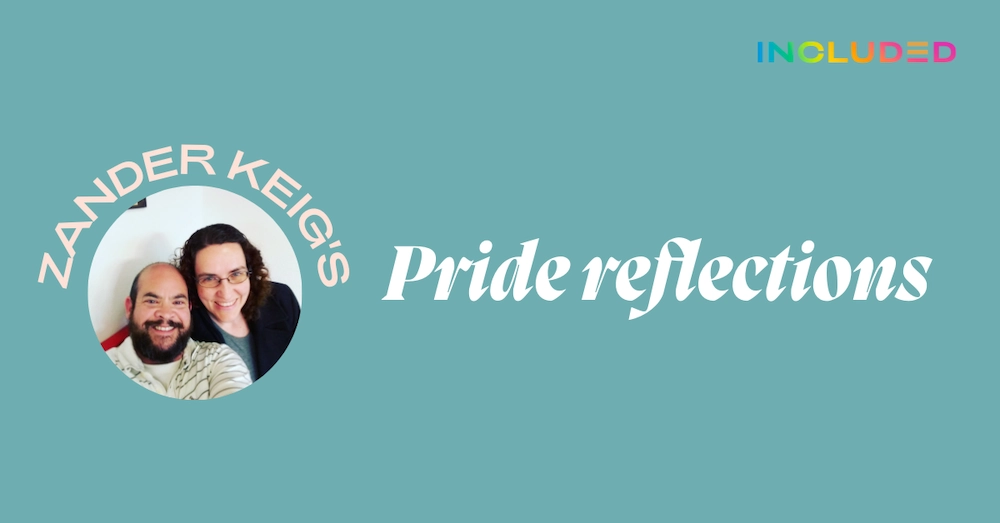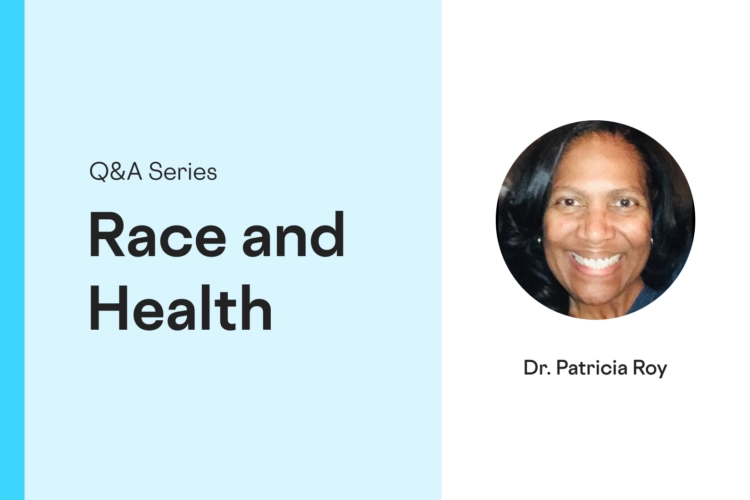Much has changed over the years. While there are still many barriers to receiving life-saving healthcare or and it’s still not safe for all people to be who they truly are at work and in public, many more queer and trans people now have the freedom to be who they are openly. Millennials and Gen Z have begun to come out at a younger age. Because of the internet and social media, more information is widely available, and in many ways it’s more possible than ever to find communities and identities that fit you. However, far from just learning about ourselves, learning about the history of our community and both the joys and struggles of our elders is sacred—and helps us understand how others have helped to pave the way for the rest of us.
For Pride Month, we spoke with older queer and trans people who have lived through history and have incredible perspective. Their first-hand experiences are historical in and of themselves—and speak to the progress that we’ve made since the Stonewall uprising in 1969, and the rights and opportunities we’ve gained.
Zander Keig, He/Him, First-Generation Latino Man of Trans Experience
Can you tell me a little bit about your coming out stories?
My first coming out was at age 14 in 1980 as a lesbian. I told my mother first. I had already been in a semi-romantic relationship (we held hands and I wrote her poetry) with another young woman for at least 6 months at that time. It was while living in an all-girls juvenile delinquent group home in San Diego, due to being “incorrigible” that I decided to pursue relationships with other girls. Up to that point I had been boy crazy. I figured ‘when in Rome’… there were no boys around. My mother was bisexual and I frequently saw her with girlfriends, when not married to a man (she was married 8 times), so I was not averse to the possibility of having a girlfriend, but it just never interested me until it was the only option available for nearly 2 years during the heyday of my adolescence. My mother’s reaction was sweet: she handed me a copy of Rubyfruit Jungle, the coming of age lesbian story written by lesbian literary and political pioneer (and Martina Navratilova’s girlfriend) Rita Mae Brown, and stuck me on a bus to go visit with my grandparents. I did not tell my dad until I was 20 years old (1986) and needed his help to escape an abusive relationship with an older woman I had been in a relationship with for two years. My dad was more worried about my safety than my sexual orientation. We never really discussed my coming out or my abusive relationship, but I knew he supported me no matter what. Three months later I enlisted in the US Coast Guard, prior to President Clinton enacting the Don’t Ask Don’t Tell policy, which meant hiding in order to serve.
My second coming out was at age 39 in 2005 as a trans man. This time I only told my father. My mother died in 2000 and I am fairly certain she would not have approved: she already disapproved of my masculine presentation as a woman, I’m sure transitioning would have just pushed her over her limits. She may have been bisexual, but she was also very conventional. My dad on the other hand was a trooper. His only request was “Send me some web links, so I can read up on it.” I was happy to oblige. Unlike my first coming out, a medical gender transition renders one unrecognizable to many, so I was uncertain how to disclose my transition to extended family. I was raised in a very large Mexican Roman Catholic family as a first-generation American and I had several lesbian and gay family members (almost entirely once or twice removed family members), so I was not worried about disclosing, but also did not want to have to be so declarative about my transition. I ultimately decided not to tell anyone and just kept showing up every 3-9 months looking and sounding differently. They got the point. No one expressed any negative feelings regarding my gender transition. If anyone disagreed they kept it to themselves, which is how my family operates overall, so it was not unique to my situation.
How have you personally seen queer and trans rights expand and change over the years?
There have been many changes over the last 54 years socially and politically. Same-sex marriage became legal, open military service became policy, nearly every Fortune 1000 corporation has an LGBT Employee Resource Group and offers their transgender employee medically-necessary transition-related healthcare coverage, there has been a proliferation of LGBT advocacy organizations across the country, hundreds of college campuses now have an LGBT student center, gender-neutral bathroom, and dormitory options, a Republican presidential candidate carried a rainbow flag on stage and received a standing ovation, the US Supreme Court ruled that the 1964 Civil Rights Act protects LGBT employees from discrimination based on sex, Pride has been celebrated at the White House, more than once, and the Evangelical Lutheran Church of America ordained and then elected to Bishop an out transgender minister. I call that progress!
Is there any other important context or perspective you’d want to share with younger queer and trans people about what you’ve seen and experienced during your life?
When I was just coming out as lesbian in 1980 there were just a few mainstream identity labels to select from: gay, lesbian, bisexual, transsexual, transvestite, and crossdresser. There were of course lesser-known or seemingly pejorative identity labels, such as dyke, queer, and leather daddy, to name a few, but the current options far exceed what was available then. Nowadays identity labels proudly blend or transgress notions of sexual orientation and gender identity with political and/or theoretical viewpoints incorporating overlapping identities (genderqueer, queer, nonbinary, trans femme, etc.)
What would you want younger queer and trans people who have come out more recently to know or understand about evolving in identity?
I would suggest to young people just now coming out that knowing LGBTQ+ history is important for two reasons: to glean how much has changed and to grok, the price the pioneers paid to pave the way for the rest of us to walk taller, speak louder and define our identities clearer.
About the author
Editorial Team
Our Editorial Team is composed of our leaders, clinicians, and care coordinators, as well as other Included Health employees, all who are working to raise the standard of healthcare for everyone. Together, they combine decades of subject matter experience across all fields of healthcare.



